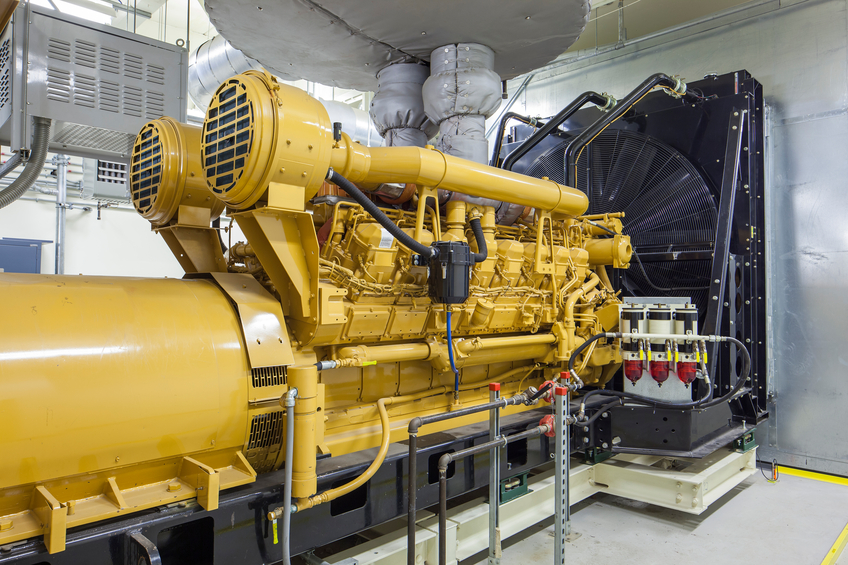Wisconsin Energy Efficiency and Ethics 17 PDH Discount Package 2
Water Efficiency Management Guide for Mechanical Systems (M02-055)
LED Troffer Retrofit Lighting and Controls: Best Practices (E01-011)
Continuous Energy Improvement in Motor Driven Systems (E08-007)
Ethics in Professional Practice (LE2-007)

This online engineering PDH course provides a brief overview of wind turbine technology and its associated components, discusses the financial considerations and the technological improvements that would be required to increase the reliance on wind energy in the future.
Current turbine technology has enabled wind energy to become a viable power source in today’s energy market. Advancements in turbine technology that have the potential to increase wind energy’s presence are currently being explored through areas of study including reducing capital costs, increasing capacity factors, and mitigating risk through enhanced system reliability.
This 4 PDH online course is intended for renewable, sustainability, mechanical, electrical, and industrial engineers, as well as other technical personnel who are interested in gaining a basic understanding of wind turbine technology.
This PE continuing education course is intended to provide you with the following specific knowledge and skills:
- Familiarizing with the basic configuration of the modern wind turbine
- Knowing the options in improving wind turbine technology
- Understanding the technical and financial risks involved in wind technology
- Familiarizing with offshore wind technology
- Learning about distributed wind technology (DWT) and their applications
Upon successful completion of the quiz, print your Certificate of Completion instantly. (Note: if you are paying by check or money order, you will be able to print it after we receive your payment.) For your convenience, we will also email it to you. Please note that you can log in to your account at any time to access and print your Certificate of Completion.

This online engineering PDH course presents guidelines on how to reduce mechanical system water use in residential buildings. Mechanical systems are frequently utilized to provide heating and cooling for residential properties. They typically fall into two categories: centralized and decentralized systems.
Centralized mechanical systems provide heating and cooling from a central location, such as a mechanical room or utility penthouse. These systems are more common in mid- and high-rise multifamily properties and can include cooling towers, boilers, and steam systems, each of which uses water as the heat transfer medium. As a result, the use of water for building heating and cooling can be significant and using sound management practices is a good opportunity for water savings.
Decentralized mechanical systems treat each unit of a multifamily property as its own space, as if each unit were a stand-alone single-family residence. These systems do not typically use process water, so they are not the focus of this water efficiency management guide.
This 2 PDH online course is intended for mechanical, environmental and civil engineers, as well as other technical personnel who are interested in learning more about reducing water use in mechanical systems.
This PE continuing education course is intended to provide you with the following specific knowledge and skills:
- Understanding the basics principles behind single-pass cooling, cooling towers and boiler/steam systems
- Understanding mechanical system water use
- Familiarizing with the maintenance and best management practices
- Knowing the mechanical systems retrofit and replacement options
- Familiarizing with the water savings calculations and assumptions
Upon successful completion of the quiz, print your Certificate of Completion instantly. (Note: if you are paying by check or money order, you will be able to print it after we receive your payment.) For your convenience, we will also email it to you. Please note that you can log in to your account at any time to access and print your Certificate of Completion.

This online engineering PDH course provides basic information on LED troffer retrofit lighting and controls best practices.
Lighting use constitutes about 20% of the total source electricity consumption in commercial buildings. Most of the lighting in U.S. commercial buildings is provided by fluorescent troffer ceiling fixtures. There are currently over 350 million installed troffers using more than 65 million kWh (the annual energy usage of 6 million U.S. homes).
Retrofitting these fluorescent troffers to light-emitting diode (LED) sources offers the potential for enormous energy savings. As of 2015, only 5% of the troffers in use had LED light sources. At a project level, retrofitting or replacing fluorescent troffers with LEDs can result in energy savings of 20% to 60% and help agencies meet energy-efficiency goals.
This 1 PDH online course is applicable to environmental engineers who are interested in gaining knowledge about LED retrofit kits, TLEDs, and lighting controls best practices.
This PE continuing education course is intended to provide you with the following specific knowledge and skills:
- Familiarizing with the different options of retrofitting existing fluorescent troffer fixtures with LEDs
- Familiarizing with the different types of tubular LEDs and their characteristics
- Gaining a general overview of the features of retrofit kits including installation time requirements, efficacy, and controls
- Learning about the factors to consider when installing new luminaires including existing condition of luminaires, equipment purchase costs, energy savings, installation labor costs, ceiling plenum access, light levels
- Understanding the importance of color characteristics of the light from the troffer and the measurements used to describe lighting
- Learning about the different types of lighting controls and their characteristics
Upon successful completion of the quiz, print your Certificate of Completion instantly. (Note: if you are paying by check or money order, you will be able to print it after we receive your payment.) For your convenience, we will also email it to you. Please note that you can log in to your account at any time to access and print your Certificate of Completion.

This online engineering PDH course presents the fundamental information and necessary guidance required to assist the Manufacturing and Process industries in optimizing their electric motor driven systems which leads to substantial energy / cost savings.
Electric motors are among the least well-managed industrial equipment, even though motor-driven equipment accounts for approximately 70% of the electrical energy consumed by process industries and approximately 90% for electrical intensive industries. Motors that are not properly managed can result in billions of dollars in wasted energy and operating costs to an industry.
A detailed analysis of the U.S. motor systems inventory indicates that this energy use could be reduced by 11% to 18% if plant managers implement all cost-effective applications of mature and proven energy efficiency technologies and practices. It is worth noting that the suggested improvements are not necessarily limited to the U.S., but can be implemented in any industry around the world that utilizes motor driven systems.
This 8 PDH online course is applicable to electrical, mechanical, and industrial engineers as well as other technical personnel interested in learning more about improving the operation of motor driven systems.
This PE continuing education course is intended to provide you with the following specific knowledge and skills:
- Familiarizing with motor energy management and best practices
- Understanding the different types of utility charges
- Learning about the steps involved in conducting a motor survey
- Familiarizing with motor specification and selection considerations
- Estimating motor load and efficiency
- Analyzing motor efficiency opportunities
- Conducting plans for improving motor efficiency
- Familiarizing with the opportunities to improve system efficiencies
- Understanding the importance and practicality of power factor correction
Upon successful completion of the quiz, print your Certificate of Completion instantly. (Note: if you are paying by check or money order, you will be able to print it after we receive your payment.) For your convenience, we will also email it to you. Please note that you can log in to your account at any time to access and print your Certificate of Completion.

In this online engineering PDH course, background on the philosophical models that guide ethical behavior is discussed and then applied to specific situations in engineering codes of ethics. This course is based on the American Society of Mechanical Engineers Professional Practice Curriculum, Volume 8, Section: Engineering Ethics.
Many engineering organizations have drafted codes of ethics to which their members are required to commit. Generally, these codes are quite similar and are based on a few fundamental principles which provide guidance to professional engineers in common situations. Nevertheless, there are many difficult or ambiguous situations in which the best ethical solution is difficult to determine.
This 2 PDH online course is intended primarily for engineers seeking to learn ethical principles and how to apply them to their professional practice.
This PE continuing education course is intended to provide you with the following specific knowledge and skills:
-
Determining ethical behavior using several philosophical models
-
Evaluating a practical situation in terms of a professional code of ethics
-
Identifying situations that represent conflicts of interest and formulate a proper response
-
Applying the standards of professional ethics in technical communication
-
Recognizing environmental impacts of engineering work
-
Considering principles of sustainable development in the performance of professional duties
In this professional engineering CEU course, you need to review "Ethics in Professional Practice" published by the American Society of Mechanical Engineers (ASME). (This course document is reproduced by permission of the ASME (www.asme.org). You may also download from or view this course document on the ASME's website by clicking on Ethics in Professional Practice).
Once you complete your course review, you need to take a multiple-choice quiz consisting of fifteen (15) questions to earn 2 PDH credit. The quiz will be based on this ASME publication.
Upon successful completion of the quiz, print your Certificate of Completion instantly. (Note: if you are paying by check or money order, you will be able to print it after we receive your payment.) For your convenience, we will also email it to you. Please note that you can log in to your account at any time to access and print your Certificate of Completion.